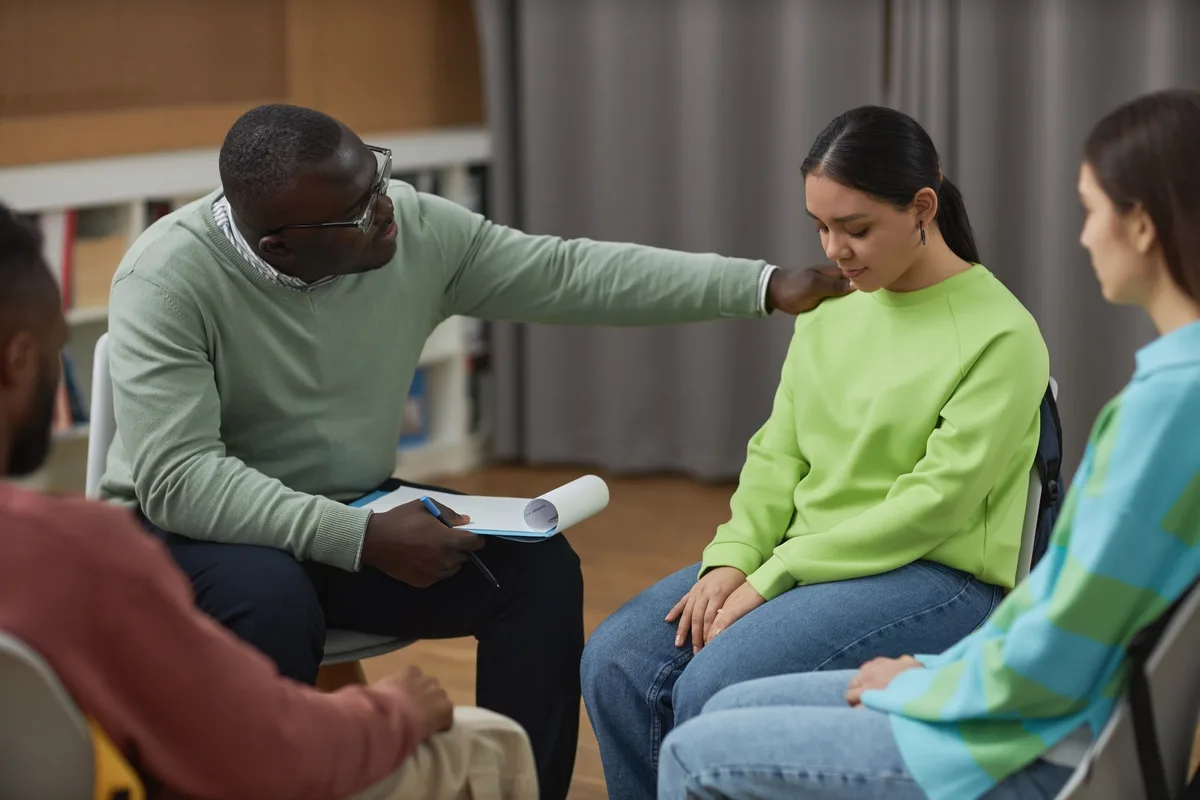24/7 Helpline:
(866) 899-221924/7 Helpline:
(866) 899-2219
Learn more about Fentanyl Rehab centers in Laurens County

Other Insurance Options

Cigna

United Health Care

Highmark

PHCS Network

Covered California
Beacon

Lucent

Self-pay options

Horizon Healthcare Service

Multiplan

Holman Group

Magellan Health

Evernorth

Meritain

WellPoint

Carleon

Kaiser Permanente

Health Net

Health Partners

Sliding scale payment assistance













Promise of Hope – Women’s Location
Promise of Hope – Women’s location is a drug and alcohol rehab center located in Dudley, Georgia. Th...

FCC Behavioral Health – Stoddard County
FCC Behavioral Health - Stoddard County provides intensive outpatient and outpatient adult substance...

Southeast Missouri Behavioral Health
Southeast Missouri Behavioral Health is an outpatient facility that offers treatment for individuals...










































































































